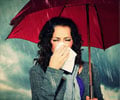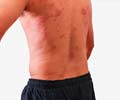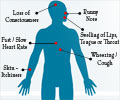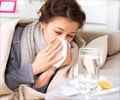- Cetirizine - (https://www.ncbi.nlm.nih.gov/books/NBK549776/ )
- Cetirizine : Medlineplus - (https://medlineplus.gov/druginfo/meds/a607056.html )
- Cetirizine: a unique second-generation antihistamine for treatment of rhinitis and chronic urticaria - (https://pubmed.ncbi.nlm.nih.gov/1674232/ )
Cetirizine Medication Information
Learn everything you need to know about Cetirizine-pronunciation, uses, dosage guidelines, indications, and when to take or avoid it.
Get up-to-date information on side effects, precautions, warnings, and proper storage to ensure safe usage.
Explore Cetirizine brand names commonly used in India and internationally, along with detailed pricing information. Consult your healthcare provider for tailored medical advice.
Generic Name : Cetirizine Pronunciation : Cet-ree-zine ICD Code : Y55.5 Therapeutic Classification : Antihistamines And DecongestantsBrand Names or Trade Names of Cetirizine
India :
International :
Aller-Tec, Alleroff, Zyrtec
Why is Cetirizine Prescribed? (Indications)
This medication is an antihistamine, prescribed for allergic reactions. It blocks the histamine action, which reduces allergy symptoms.When should Cetirizine not be taken? (Contraindications)
Hypersensitivity.What is the dosage of Cetirizine?
Adult: PO- The recommended dose is 10 mg once daily.How should Cetirizine be taken?
It comes as a tablet to take by mouth, with food.What are the warnings and precautions for Cetirizine?
• Caution should be exercised in patients with history of kidney or liver disease, any allergy, who are taking other medications, elderly, children, during pregnancy and breast-feeding.• It may cause drowsiness, do not drive a car or operate machinery while taking this medication.
• Avoid alcohol consumption.
What are the side effects of Cetirizine?
Most Common - Headache, inflammation of pharynx, abdominal pain, cough, drowsiness, diarrhea, nosebleed, asthma, nausea and vomiting.Metabolic - Loss of appetite, flushing, increased salivation, urinary retention, dehydration, increased sugar, and thirst.
Heart - Heart failure, high blood pressure, fast heart rate, and palpitations.
Central Nervous System - Incoordination, confusion, slurred speech, leg cramps, tingling, fainting, paralysis, tremor, twitching, visual defect, abnormal thinking, agitation, memory loss, sleeplessness and nervousness.
Gastrointestinal - Abnormal liver function, aggravated tooth caries, constipation, indigestion, flatulence, stomach inflammation, piles, increased appetite, blood in stool, rectal bleeding, mouth ulcer, tongue discoloration and tongue swelling.
Genitourinary - Bladder inflammation, painful urination, blood in urine, urinary frequency, urinary incontinence, and urinary tract infection, painful menstrual period, irregular period, breast pain and vaginal inflammation.
Eye and ENT - Deafness, ear pain, ear damage, ringing in the ear, taste perversion, blindness and increased eye pressure.
Musculoskeletal - Muscle weakness/pain, joint inflammation and joint pain.
Respiratory - Lung inflammation, difficulty in breathing, increased sputum, pneumonia, respiratory disorder and upper respiratory tract infection.
Skin - Pimples, hair loss, skin inflammation, eruption, dry skin, redness, itching, and hives.
Body as a Whole - Accidental injury, weakness, back pain, chest pain, enlarged abdomen, face swelling, fever, hot flashes, increased weight, leg swelling, uneasiness, swelling in the extremities and rigors.
 MEDINDIA
MEDINDIA
 Email
Email



















